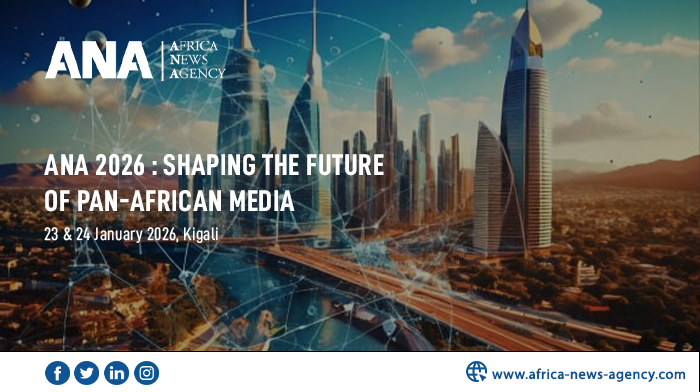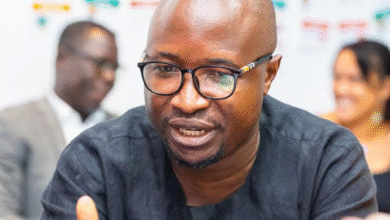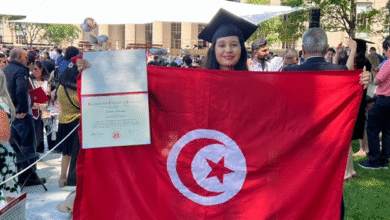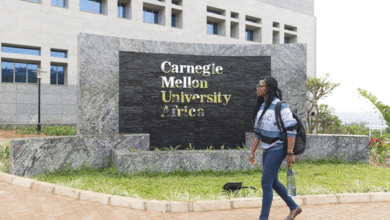Integration: the only solution to the crisis
Barely out of the COVID-19 pandemic, and while its impact on the socio-economic fabric of the continent continues to be felt, the war in Ukraine and the rise in fuel prices are plunging the continent into a new period of uncertainty. Africa will have to stand together to cope with it!
By Dounia Ben Mohamed
Africa celebrated the entry into force of the African Continental Free Trade Area (AfCFTA) in January 2021. With a potential market of 1.2 billion consumers today, for an estimated GDP of $2.5 billion, and close to 25 billion in 2050, the continent becomes the world’s largest free trade area. Since then, the COVID-19 pandemic has upset the global order and in its wake the agenda for the establishment of the AfCFTA. While, like a bad remake, Europe is again the theatre of confrontation between the biggest powers of this world, Africa, already prey to the socio-economic consequences of the pandemic, must face the soaring price of fuel and consequently those of transport and commodity.
« The pandemic has reversed more than two decades of progress in poverty reduction on the continent”
This is according to the Economic Report on Africa 2021 (ERA2021) launched on the sidelines of the Economic Commission for Africa’s annual Conference of Ministers of Finance, Economic Planning and Development (CoM2022) in Dakar, Senegal. The report titled « Tackling Poverty and Vulnerability in Africa during the COVID-19 Pandemic, » shows that the pandemic has caused job losses, reduced income and further limited the ability of households to manage risks. “An estimated 12.6 per cent more people are likely to be pushed into poverty in one year alone more than the combined total of the additional poor since 1999,” the report says. In other words, the pandemic has reversed more than two decades of progress in poverty reduction on the continent, according to the analysis.
That critical situation could be made alarming by the war in Ukraine. « The war in Ukraine is disrupting the region’s promising economic recovery, » the IMF noted in March. “Economic activity unexpectedly picked up last year, raising growth forecasts from 3.7 percent to 4.5 percent. However, the war is tragically changing the course of events and will slow growth to 3.8 percent in 2022. »
“Beyond the current crises, governments must act decisively to diversify the economy, foster regional integration, including through the African Continental Free Trade Area, unleash the potential of the private sector and address the challenges of climate change”
A new crisis that comes atop of the impact of the pandemic, while the rise of borrowing costs and global demand is subject to increasing uncertainty; this considerably complicates the task of public authorities, which are faced with increasing needs, worsening risks and a narrowing of their field of action, says the Institution, as it sounds the alarm.
And among the solutions recommended: the AfCFTA, inter alia. « Beyond the current crises, governments must act decisively to diversify the economy, foster regional integration, including through the African Continental Free Trade Area, unleash the potential of the private sector and address the challenges of climate change. International solidarity and cooperation will continue to play a vital role in all these areas. »
« Regional integration remains the key to transforming Africa’s fragmented economies »
Emergency situations impose emergency response. This indeed was the case at the CoM2022. And at this level, the approach to be adopted is the same for all: regional integration remains the key to transforming Africa’s fragmented economies.
African countries are more than ever invited to harness opportunities embedded in integration initiatives like the African Continental Free Trade Area (AfCFTA) to foster post-COVID19 economic recovery and transformation. “On trade integration, progress has been made in boosting intra –African trade like adoption of industrialization policies and strategies. But Africa continues to trade more with the outside world than with itself,” noted Stephen Karingi, Director, Regional Integration and Trade Division of the UN Economic Commission for Africa.
The ECA director noted that macroeconomic integration and convergence was essential to accelerating intra-regional trade. Five Regional Economic Communities (COMESA, EAC, ECCAS, ECOWAS, and SADC) already have primary macroeconomic convergence criteria.
« The solutions Africa comes up with should outlive the current shocks the continent is going through and deal with future challenges »
But “Africa’s integration and socioeconomic development is impeded by huge infrastructure gaps. Production integration on the continent remains uneven and weak” he added. He said in conclusion: «The solutions Africa comes up with should outlive the current shocks the continent is going through and deal with future challenges. Political will should be dealt with and dialogue within countries (should be encouraged). »
Significant progress towards continental integration…
Even though significant progress has been made toward continental integration. Gabon has finally adopted the CEMAC passport. Of the six member countries of this regional organization, only Gabon had not yet begun issuing this document, which allows for the free movement of nationals within the member countries. It took more than ten years, but it is a major step towards regional integration in Central Africa.
Similarly, ECOWAS has launched studies for the creation of a maritime link between its member countries and Cape Verde. The aim is to promote commercial cooperation that will benefit the markets of the subregion. Better still, and still within the framework of the AfCFTA, CEMAC and ECCAS are in the process of harmonizing their industrialization and trade policies.
On the side of the « partners » too, the process is being implemented and supported. The Enhanced Integrated Framework (EIF), the United Nations Economic Commission for Africa (ECA) and the International Islamic Trade Finance Corporation (ITFC) will assist African countries in operationalizing the African Continental Free Trade Area (AfCFTA). The United Nations Development Program (UNDP) and the African Development Bank (AfDB) are already on board, while the United States, through the US-Africa Business Council, has stated its intention to « attract investment in a less fragmented market.”
In this regard, officials of the AfCFTA and the International Trade Centre (ITC) signed on May 17, a partnership that aims to « support the overall regional integration process in Africa » in the context of the implementation of the AfCFTA. The agreement should also help « strengthen the competitiveness of micro, small and medium enterprises (MSMEs) as well as women and young entrepreneurs, so that they can benefit from the opportunities offered by the single market and thus increase their participation in regional/continental value chains.”
… But at an accelerated pace
For its part, the AfCFTA Secretariat has not been idle, working from country to country to support the local implementation process (see Focus: What is the status of the AfCFTA?). It has also developed the African Payment and Settlement System (APSS), in collaboration with Afreximbank, to promote cross-border payments.
The process is undoubtedly underway… However, given the current challenges, the pace will have to be accelerated. A first official assessment will undoubtedly be made during the AfCFTA summit scheduled for November…







